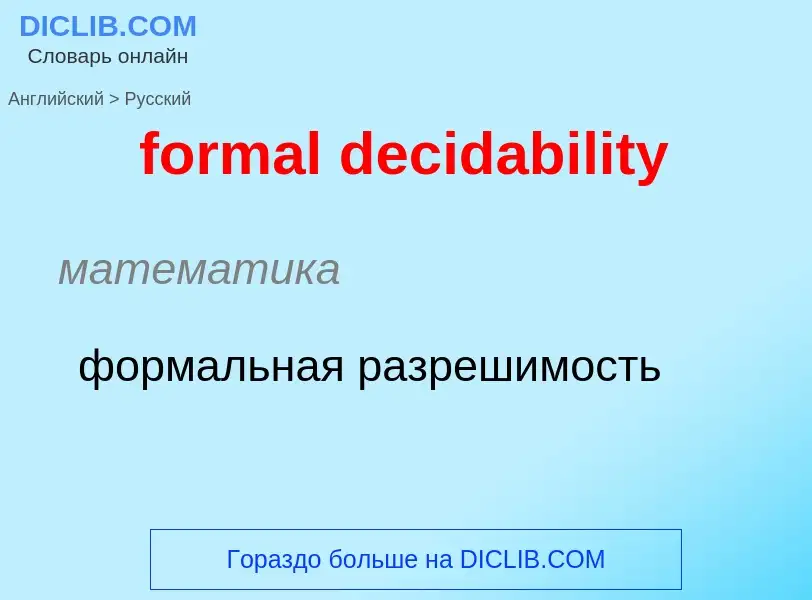Μετάφραση και ανάλυση λέξεων από την τεχνητή νοημοσύνη ChatGPT
Σε αυτήν τη σελίδα μπορείτε να λάβετε μια λεπτομερή ανάλυση μιας λέξης ή μιας φράσης, η οποία δημιουργήθηκε χρησιμοποιώντας το ChatGPT, την καλύτερη τεχνολογία τεχνητής νοημοσύνης μέχρι σήμερα:
- πώς χρησιμοποιείται η λέξη
- συχνότητα χρήσης
- χρησιμοποιείται πιο συχνά στον προφορικό ή γραπτό λόγο
- επιλογές μετάφρασης λέξεων
- παραδείγματα χρήσης (πολλές φράσεις με μετάφραση)
- ετυμολογία
formal decidability - translation to ρωσικά
математика
формальная разрешимость
математика
существенно неразрешимый
математика
формальный ряд
Ορισμός
Βικιπαίδεια
Universal pragmatics (UP), more recently placed under the heading of formal pragmatics, is the philosophical study of the necessary conditions for reaching an understanding through communication. The philosopher Jürgen Habermas coined the term in his essay "What is Universal Pragmatics?" where he suggests that human competition, conflict, and strategic action are attempts to achieve understanding that have failed because of modal confusions. The implication is that coming to terms with how people understand or misunderstand one another could lead to a reduction of social conflict.
By coming to an "understanding," he means at the very least, when two or more social actors share the same meanings about certain words or phrases; and at the very most, when these actors are confident that those meanings fit relevant social expectations (or a "mutually recognized normative background").
For Habermas, the goal of coming to an understanding is "intersubjective mutuality ... shared knowledge, mutual trust, and accord with one another". In other words, the underlying goal of coming to an understanding would help to foster the enlightenment, consensus, and good will necessary for establishing socially beneficial norms. Habermas' goal is not primarily for subjective feeling alone, but for development of shared (intersubjective) norms which in turn establish the social coordination needed for practical action in pursuit of shared and individual objectives (a form of action termed "communicative action").
As an interdisciplinary subject, universal pragmatics draws upon material from a large number of fields, from pragmatics, semantics, semiotics, informal logic, and the philosophy of language, through social philosophy, sociology, and symbolic interactionism, to ethics, especially discourse ethics, and on to epistemology and the philosophy of mind.


